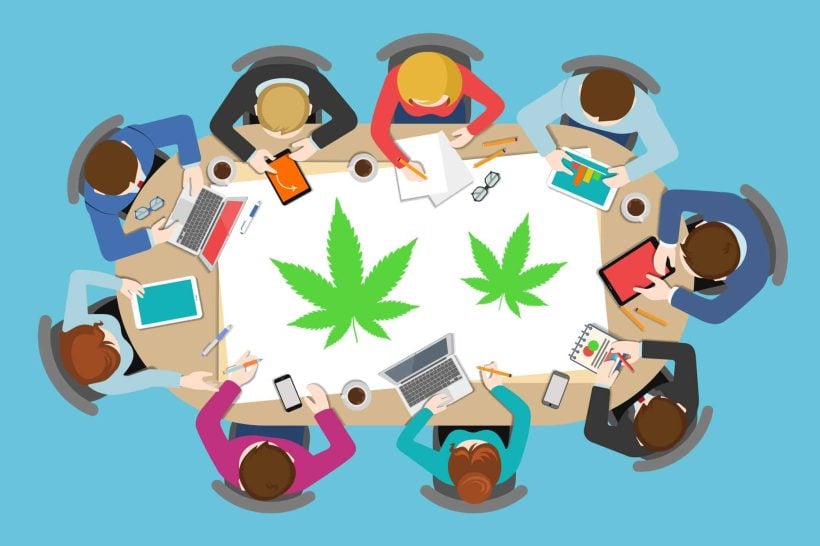It’s 2023, and nearly half of all Americans now have legal access to medical marijuana. Given that most of those same people hold down a job, this raises a legitimate concern:
Will easier access to marijuana impact workplace safety?
There have been some dire predictions made as legal marijuana became a thing. Most recently, the American College of Occupational and Environmental Medicine warned:
Marijuana can cause impairment which will interfere with safe and acceptable performance in the workplace. This is particularly concerning for those individuals working in safety-sensitive positions where impairment can affect the health and safety of other workers, customers, the general public, or others.
Granted, driving or operating heavy machinery while “stoned” is unacceptable, same as drinking on the job or working while on heavy medications. But these are examples of abuse — not use. To answer the big-picture question of whether legal marijuana threatens workplace safety, we need to get into the research.
The most comprehensive study to date on the relationship between medical marijuana laws (MMLs) and workplace safety comes from the National Bureau of Economic Research (NBER). This non-partisan think tank is one of the nation’s oldest and most influential voices on social and economic trends.
In 2021, NBER released a report titled, “The Public Health Effects Of Legalizing Marijuana” that digested and summarized information from more than 200 highly credible research studies. A section of this report dealt with the subject of workplace safety, and the findings might come as a surprise to those who are still in the anti-marijuana camp.
Marijuana: A Way to Curb Workplace Drinking?
The analysis of MMLs and workplace safety begins with the mention of substance substitution as a possible effect of legalization. This is a phenomenon that’s been noted by a number of marijuana researchers. Drug and Alcohol Review describes this as “using cannabis as a safer alternative for alcohol, illicit drugs and pharmaceuticals based on their perceptions of less adverse side effects, low-risk for addiction and greater effectiveness at relieving symptoms, such as chronic pain.”
The authors of the NEBR report write:
If legalization discourages the consumption of alcohol, opioids, and other substances, then it could improve workplace safety and reduce on-the-job injuries and fatalities.
To be clear: The authors aren’t suggesting that marijuana become an at-work substitute for booze. They are merely reporting on a trend.
It turns out that drinking on the job is a significant problem. An Iowa-based study indicates that 20% of all workplace deaths involve measurable levels of alcohol consumption. Research from the University of Buffalo concluded that nearly nine million Americans drink during the work day, another 11 million come to work with a hangover, and just over two million are legally intoxicated while working.
So what happens to workplace safety when legal marijuana becomes available? The NEBR report includes information from a long-term study comparing workplace fatalities in all 50 states. According to the data:
- Legalizing medical marijuana was associated with a 19.5% first-year reduction in the expected number of workplace fatalities among workers aged 25–44
- The association between legalizing medical marijuana and workplace fatalities became stronger over time
- Five years after coming into effect, medical marijuana legalization was associated with an average 33% reduction in the expected number of workplace fatalities
- This reduction may be the result of workers substituting marijuana
Medical Marijuana Improves Employee Health & Safety
The NEBR report includes four more papers devoted to MML’s effect on workplace safety and employee health. And, according to the results, legalizing medical marijuana doesn’t just reduce workplace deaths; it also provides a number of less dramatic, but equally positive, results.
A 20-year review of sickness-related absences from work found that:
- Legalizing medical marijuana resulted in an overall 8% reduction in reported sick days
- States that had the least restrictive medical marijuana policies showed greater average reductions in sick days
- The subgroup within this study that showed the largest improvement in workplace wellness was middle-aged men (the authors’ reasoning was that this group is the most likely to hold a medical marijuana card)
By data mining more than two decades of workers’ compensation claims, researchers found that when states adopted MMLs, the total number of workers’ compensation claims declined. They also showed the duration of those claims displayed a modest but measurable decrease. The explanation for this was that:
Medical marijuana can allow workers to better manage symptoms associated with workplace injuries and illnesses and, in turn, reduce the need for workers’ compensation.
Benefits of Pain Management in the Workplace
There’s also evidence that medical marijuana legalization benefits older workers. A 2019 survey of adults age 51 and up found that workers in states with legal medical marijuana reported less pain and better overall health. The same survey found:
MML adoption increased the hours of work supplied by older adults who were already in the labor force, and these effects were strongest for a preexisting health condition that would qualify for legal medical marijuana use.
In addition to the pain management benefits mentioned in the NBER report, medical marijuana may play a role in increased worker productivity in other ways. CannaMD has reported that medical marijuana may improve workplace productivity by:
- Reducing anxiety
- Improving cognitive function
- Enhancing sleep and wakefulness
We have also presented evidence showing that responsible post-work cannabis consumption does not appear to have any negative effects on next-day workplace performance.
Summing up all the currently available information, it is reasonable to conclude that increased access to medical marijuana — when combined with responsible use — provides a net positive for workplace safety and health. As new insights on the subject come to light, CannaMD will continue to keep you updated.




